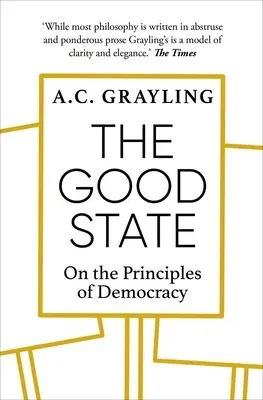As democracy shows signs of decay, how do we not only arrest its
decline but build something better - a state which is democratic in the
fullest sense?
The foundations upon which our democracies stand are inherently
flawed, vulnerable to corrosion from within. What is the remedy?
A. C. Grayling makes the case for a clear, consistent, principled and
written constitution, and sets out the reforms necessary - among them
addressing the imbalance of power between government and Parliament,
imposing fixed terms for MPs, introducing proportional representation
and lowering the voting age to 16 (the age at which you can marry,
gamble, join the army and must pay taxes if you work) - to ensure the
intentions of such a constitution could not be subverted or ignored. As
democracies around the world show signs of decay, the issue of what
makes a good state, one that is democratic in the fullest sense of the
word, could not be more important.
To take just one example: by the simplest of measures, neither Britain
nor the United States can claim to be truly democratic. The most basic
tenet of democracy is that no voice be louder than any other. Yet in our
'first past the post' electoral systems a voter supporting a losing
candidate is unrepresented, his or her voice unequal to one supporting a
winning candidate, who frequently does not gain a majority of the votes
cast. This is just one of a number of problems, all of them showing that
democratic reform is a necessity in our contemporary world.

